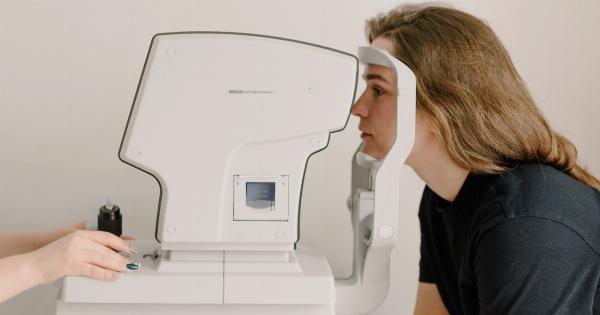Iodine is an essential nutrient that the body requires to function properly. It is most commonly known for its role in thyroid hormone production, which regulates metabolism in the body.
However, iodine is also necessary for the proper development of the brain, nervous system, and other organs.
Iodine deficiency is a common problem in many parts of the world, particularly in areas where the soil is deficient in iodine. Some of the signs of iodine deficiency that can be seen include:.
1. Goiter
One of the most visible signs of iodine deficiency is the development of a goiter. A goiter is an enlarged thyroid gland that can be seen as a bulge in the front of the neck.
The thyroid gland requires iodine to produce thyroid hormone, and when the body does not have enough iodine, the thyroid gland can become enlarged in an attempt to produce more hormone.
2. Weight Gain
Iodine plays a crucial role in regulating metabolism in the body. When the body does not get enough iodine, it can slow down the metabolism, leading to weight gain and difficulty losing weight.
3. Fatigue
The thyroid gland produces thyroid hormone, which is necessary to regulate energy levels in the body. When the body does not get enough iodine, the thyroid gland can become underactive, leading to fatigue and difficulty concentrating.
4. Weak Immune System
Iodine is necessary for the proper functioning of the immune system. When the body does not get enough iodine, the immune system can become weak, leading to increased susceptibility to infections and illness.
5. Hair Loss
The thyroid gland produces hormones that are necessary for the growth of healthy hair. When the body does not get enough iodine, the thyroid gland can become underactive, leading to hair loss and thinning.
6. Dry Skin
Iodine is necessary for the production of oils that keep the skin healthy and moisturized. When the body does not get enough iodine, the skin can become dry and flaky.
7. Cognitive Impairment
Iodine is essential for the proper development of the brain and nervous system, particularly during pregnancy and early childhood.
When the body does not get enough iodine, it can lead to cognitive impairment, including reduced IQ and learning disabilities.
8. Depression
Iodine is necessary for the production of serotonin, a neurotransmitter that regulates mood. When the body does not get enough iodine, it can lead to decreased serotonin levels, which can cause depression and other mood disorders.
9. Infertility
Iodine is essential for the production of thyroid hormone, which is necessary for the regulation of reproductive hormones. When the body does not get enough iodine, it can lead to fertility problems in both men and women.
10. Increased Risk of Thyroid Cancer
Chronic iodine deficiency can increase the risk of thyroid cancer, particularly in women. The thyroid gland tries to compensate for the lack of iodine by producing more cells, which can lead to abnormal growths and tumors.
Conclusion
These are some of the signs of iodine deficiency that can be seen. If you are experiencing any of these symptoms, it is essential to seek medical attention to determine the cause.
If iodine deficiency is diagnosed, supplementation may be necessary to correct the deficiency and prevent long-term complications.






























